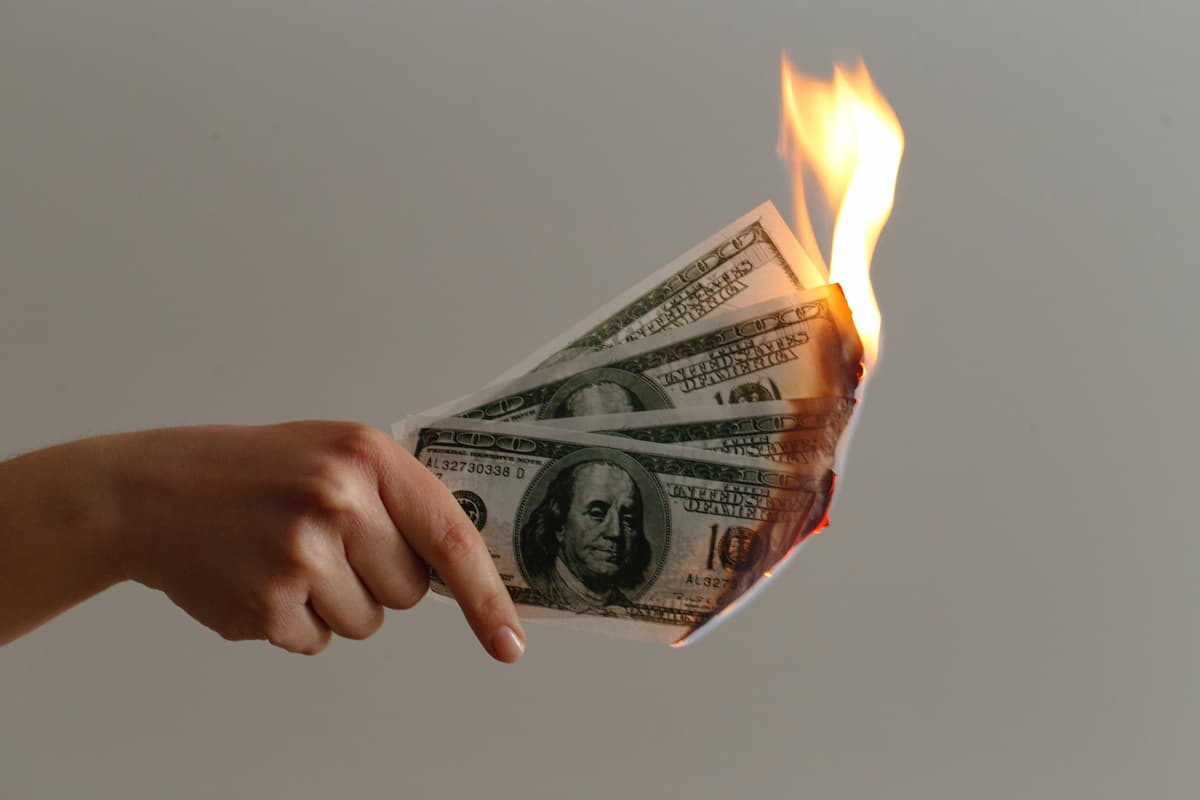Get more bang for you buck by avoiding these money wasting practices.

1. Bad Investment Decisions
Investing risk is a fickle thing. Take too much, goodbye savings. Take too little, goodbye purchasing power.
We tend to favor low-risk, low-return investments because we live in fear of what could happen to our irreplaceable retirement money. However, taking no risk often presents risk of its own.
According to the experts at MoneyTalksNews, "Investing, both before and after retirement, is about balance: harnessing investments designed to keep your income flowing, inflation hedged and risks manageable. Your strategy will require safe, guaranteed-income investments, as well as some exposure to stocks and other inflation-protection investments."
2. Bank Service Fees
Overdraft fees and insufficient funds can cost big bucks.
While a few dollars here and there may not seem like much, it can certainly add up over time. The best way to avoid it is by doing research on different banks and what they offer.
For Security Bank customers, you can save on bank fees by taking advantage of our MoneyPass network. You'll get surcharge-free access to 33,000+ ATMs nationwide.
3. Credit Card Interest
In a perfect world, credit card debt does not exist. Alas, here we are.
It's not uncommon to be paying interest rates upwards of 20 percent annually. That means if you're holding $30,000 in credit card debt, you will be paying a minimum of $6,000 on interest alone.
To avoid paying extra money for old debts, try the snowball method. Pay off the card with the lowest balance first, then move on to the next. Or consolidate credit card debt into a low-interest personal loan, where you can make one monthly payment to one entity at one interest rate.
4. Extended Warranties
Getting talked into an extended warranty on your brand new oven or car always sounds like a good idea, but in the end, most extended warranties are not worth the money. This is because the fine print of said warranty exempts them from likely problems with your new toy, or you may be buying double coverage.
The better option would be opening a savings account and putting away funds to cover any repairs that might come up.
5. Phantom Electricity
Keeping your dormant coffeepot hooked up and your phone plugged in past full power is increasing your electricity bill.
Phantom electricity costs the average household up to $200 - $300 a year. To save money — and the environment — remember to power down your devices when not in use and use a power strip to easily turn off multiple power drainers at once.
6. Private Mortgage Insurance
Investing in a home can be a smart investing decision.
But homebuyers who put down less than 20 percent typically have to pay private mortgage insurance (PMI). The insurance can end up costing close to 1 percent of the loan. How to save? Wait to buy a home until you save the 20 percent down payment and avoid PMI altogether.
7. Rental Car Insurance
Rental car insurance also sounds like a good idea in the moment of purchase. But that $20 to $40 can be put to better use — ideally in a savings account. Your personal auto and health insurance should cover any liability and health care costs in the event of an accident. So before agreeing to rental insurance, check your own policies to see if you are already covered.
8. Unclaimed 401(k) Matches
Saving for retirement — a.k.a. post income era — is crucial. But one in four employees don't invest in their 401(k) plans to earn the full match from their employers. Meaning they are throwing away free money. Free money that could be accumulating over 30 years.
9. Unclaimed Tax Deductions
Tax credits were designed to get money back in people's pockets, especially to those that need it most (small business owners, homeowners, etc.). Yet a good chunk of people who qualify for tax deductions don't take advantage of them. To make sure you get the deductions you’re entitled to, use an online tax program or hire a professional.
10. Warehouse Clubs
Joining a warehouse club can be a great way to save money AND a great way to waste food and resources. Buying in bulk is smart in that you are paying less in per-unit price, but not so smart when stocking up on items that can go bad. Funds spent on stockpiled toilet paper can be better put into an emergency financial stash. If a warehouse club member, be meticulous in your spending and cognizant of your usage habits.
We understand a lot goes into professional and personal finance decisions. Let Security Bank guide you on your investing journey with more money saving tips and tricks. Consult with one of our experienced bankers today.






